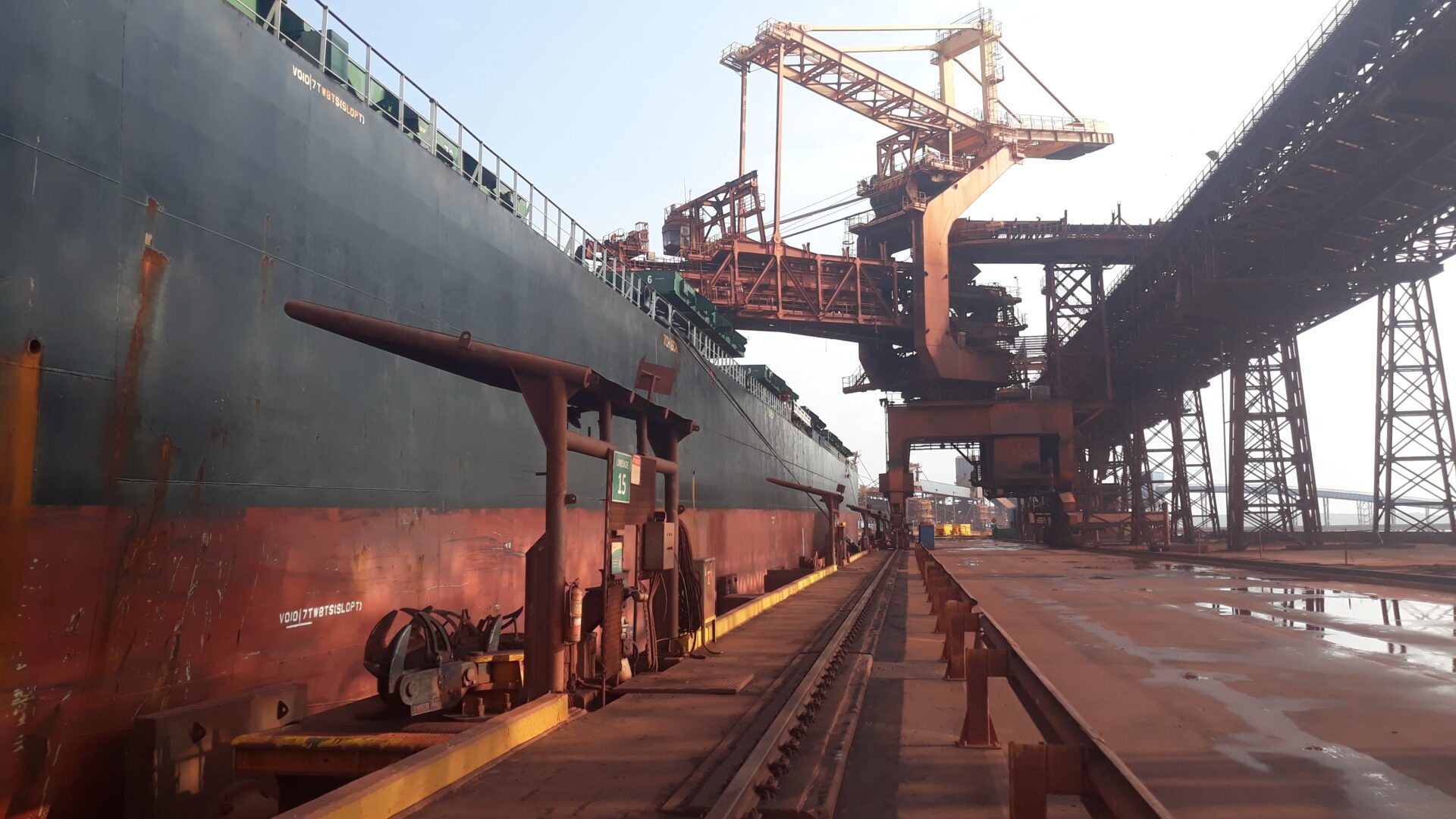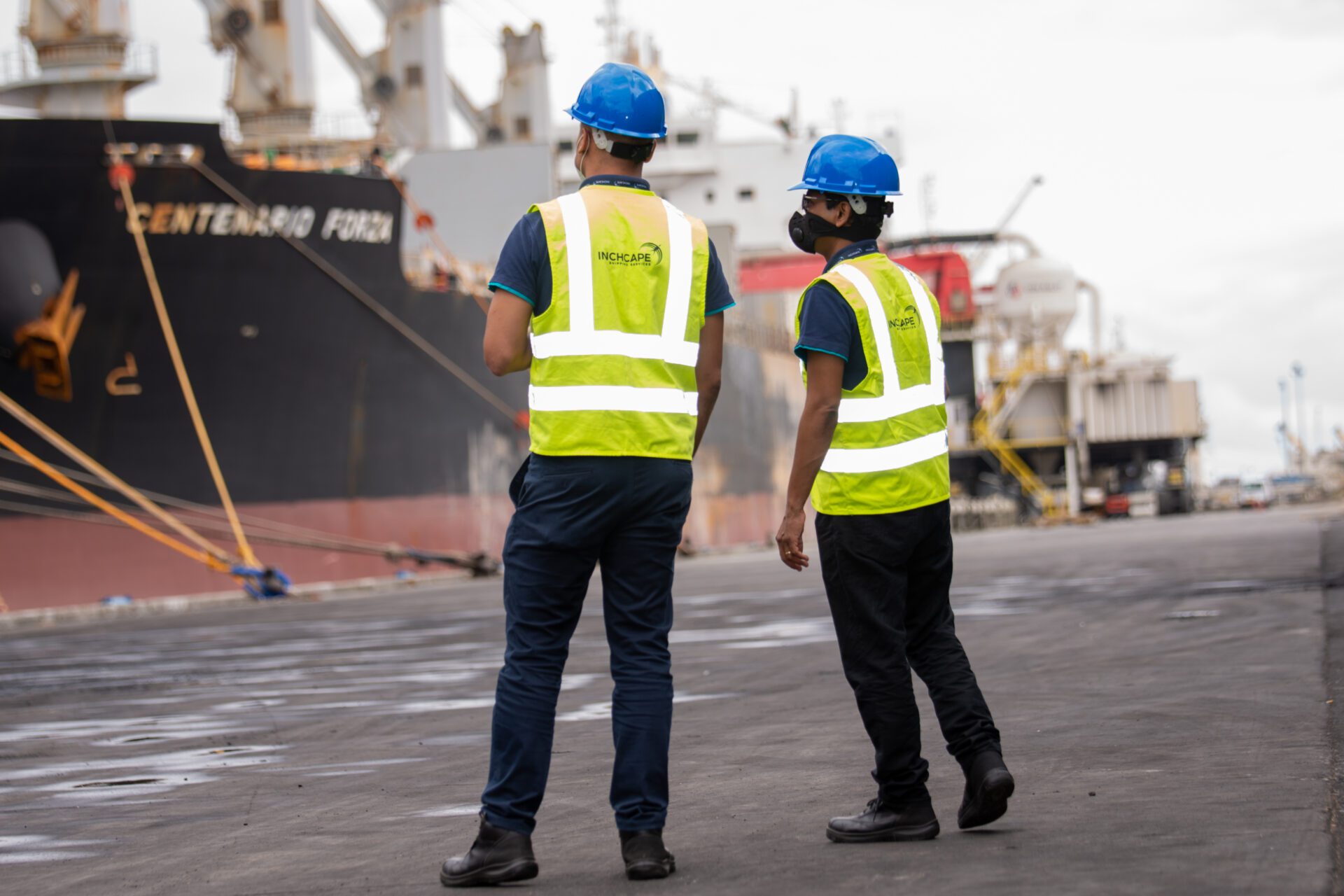The availability and accuracy of port data has been vital for voyage decision-making by dry cargo shipowners to help overcome port congestion, crew logistics and other challenges due to the pandemic that have hit the flow of maritime trade, according to Inchcape Shipping Services.
The port agency specialist has been able to deliver critical data on port line-ups and berth availability to facilitate timely vessel arrivals and expedite port turnarounds by leveraging the resources of its extensive global network, says Inchcape’s Global Sector Head for Dry Bulk, Elyse Ong.
This proved particularly important with the resurgence in the dry bulk market last year as countries rebooted industrial activity after lockdowns, which resulted in a dramatic increase in vessel traffic.
“If a ship cannot berth on arrival, this can affect demurrage and the charter party. So knowledge of berth availability is paramount for the owner, as well as information on port line-ups and local weather conditions that can lead to delays,” Ong says.
Data transparency issue
Furthermore, key documentation – such as the statement of facts and notice of readiness – also need to be provided with great accuracy.
But Ong points out that such data transparency can sometimes be difficult due to local dynamics that affect dry bulk-intensive ports in some parts of the world. “So this is where our local presence, expertise and standardised way of working are an advantage,” she says.
Inchcape offices around the world are feeding constantly updated port data into its World of Ports software platform that is accessible for ship operators wherever their vessels are located.
Ong explains the flow of accurate information is essential to voyage management as it enables Inchcape, for example, to advise operators on adjusting vessel speeds so they can make docking slots, based on its oversight of line-ups at ports where it is ‘first come, first served’.
“We are monitoring the status of different ports and communicating with the customer to maximise berthing opportunities, which can translate into savings in fuel costs and port fees by optimising port turnarounds and voyage times,” she says.


Crew solutions
Crew changes have been a particular challenge during the pandemic given lockdown restrictions in some countries and charter clauses that dictate a maximum duration for the same crew to remain onboard a vessel, with the risk of financial penalties for shipowners.
“Everyone has been looking at crew changes as operators, as well as traders and charterers, are affected if a vessel is delayed. Our web page with COVID-19 UPDATES had 177,000 visits last year,” Ong says.
“We have had frantic calls from ship operators asking us where they can drop off crews when time has been of the essence. This is both a financial and humanitarian issue where our network has been of great value.”
Port optimisation
The World of Ports system also facilitates vessel compatibility checks to determine whether destination port terminals are suitable for a particular ship that is not plying a fixed route.
“Traders and charterers have been getting more creative about where they can ship cargoes during the pandemic and our port agency network has played an important role in this by providing key data to help them think out of the box,” Ong says.
For vessels traversing the same ports, Inchcape analyses key performance indicators to tackle efficiency gaps to achieve port optimisation.
It can also provide end-to-end voyage management through its agents at the origin and destination ports for seamless handover of the ship.
“Dedicated account managers disseminate working instructions across our offices so the client has consistent standards of service wherever the vessel is trading. This backroom operational collaboration keeps the wheels turning efficiently to minimise voyage delays,” Ong says.
Dry bulk services
Inchcape provides dry bulk services under three main umbrellas – cargo agency, protective agency and bunkers – and handles the full spectrum of cargoes from iron ore, coal and breakbulk to woodchips, ammonia nitrate and fertilisers.
Its services include canal transits, such as for the Panama and Suez canals, and in-house marine surveys covering hold inspection, bunker quantity, forensic bunker, on/off hire, condition, trimming, project cargo and draft, subject to location.
The company has had specialist dry cargo teams based in China, Japan and South Korea for the past 15 years, along with specialists at key locations across the world as part of its expanding global port agency workforce that presently numbers around 2700 personnel.
Handling dry bulk requires labour-intensive operations at ports, including the need to clean cargo holds, and the pandemic has “added another layer of complication” due to manpower issues to carry out such work, according to Ong.
Inchcape has therefore adopted new technology to tackle such issues with the use of drones to carry out hold inspections and thereby mitigate safety risks for personnel. It has also developed a gadget to conduct remote draft surveys.


Risk mitigation
Ong says the company’s dry cargo work is guided by “a very holistic and customised approach” that includes strict vetting of vendors as part of port agency services in line with global QHSE regulations for risk mitigation in the areas of compliance and governance.
Its procurement strategy is geared to achieving cost savings in areas such as stevedoring, towage and crane hire. “Keeping control of expenses in the PDA is important as port costs are a critical factor in finalising a charter deal between the shipowner and trader or charterer,” she explains.
This also extends to reliable fund management in Inchcape’s role as protective agent to remit funds for shipowners.
The dry bulk market is currently in a seasonal lull with owners remaining cautious about fixing long term freight due to pandemic concerns, but Ong expects activity to pick up again later this year with the anticipated easing of restrictions.
“Inchcape’s regional teams have had to adapt to new ways of working during the pandemic by redeploying backroom resources to support our port agents, while staying ahead of restrictions and protocols through intra-office communication, and our network remains strong,” she says.